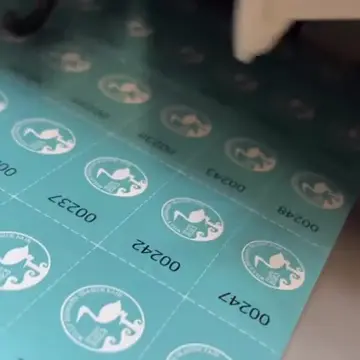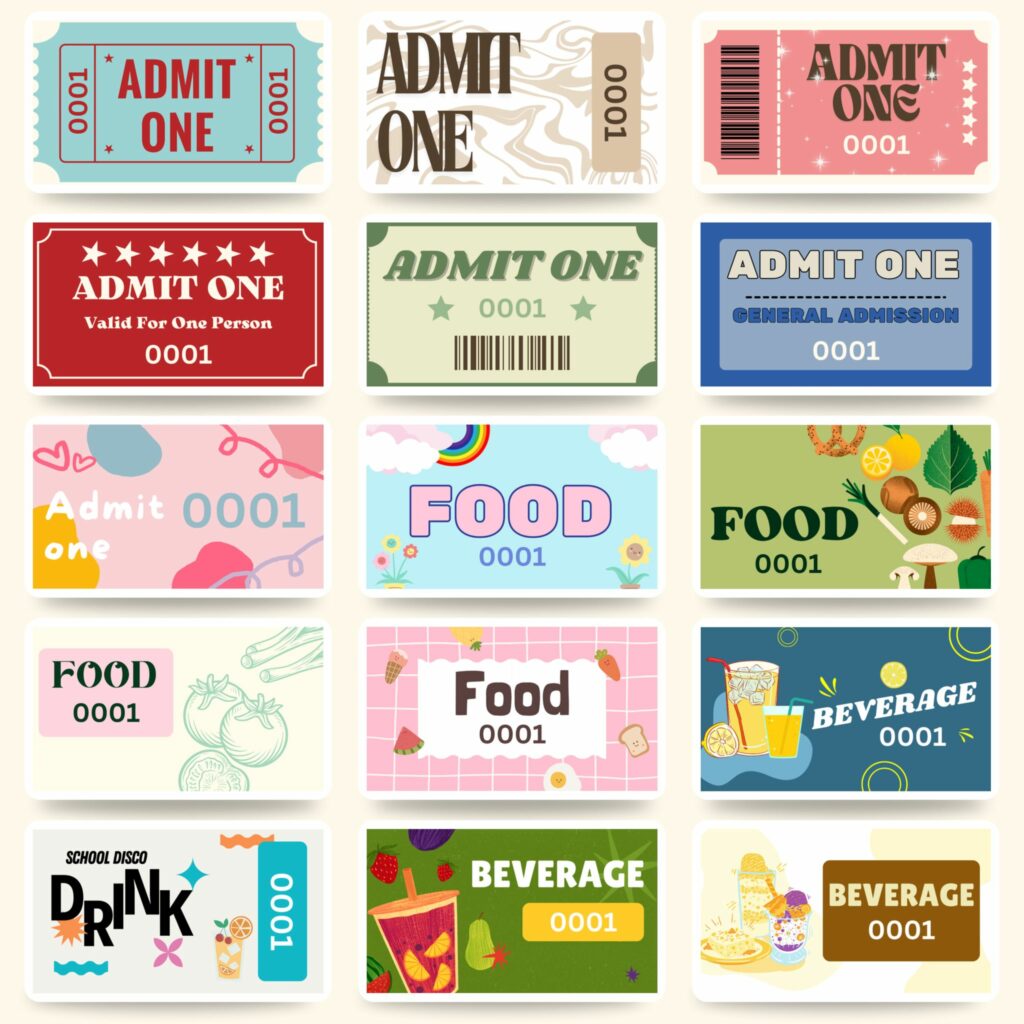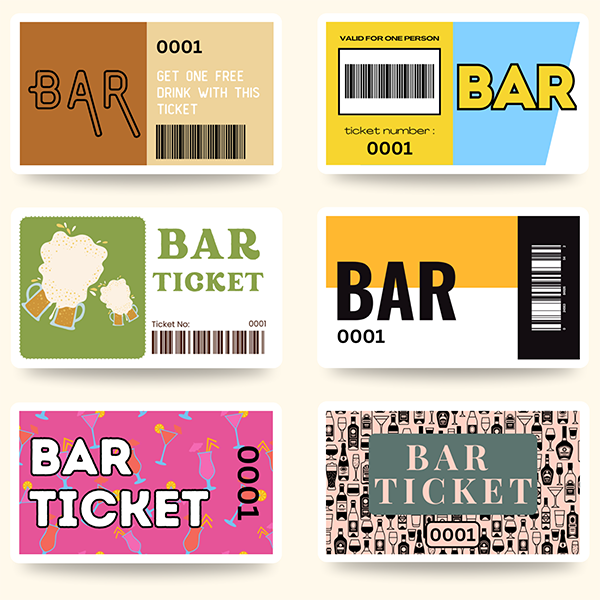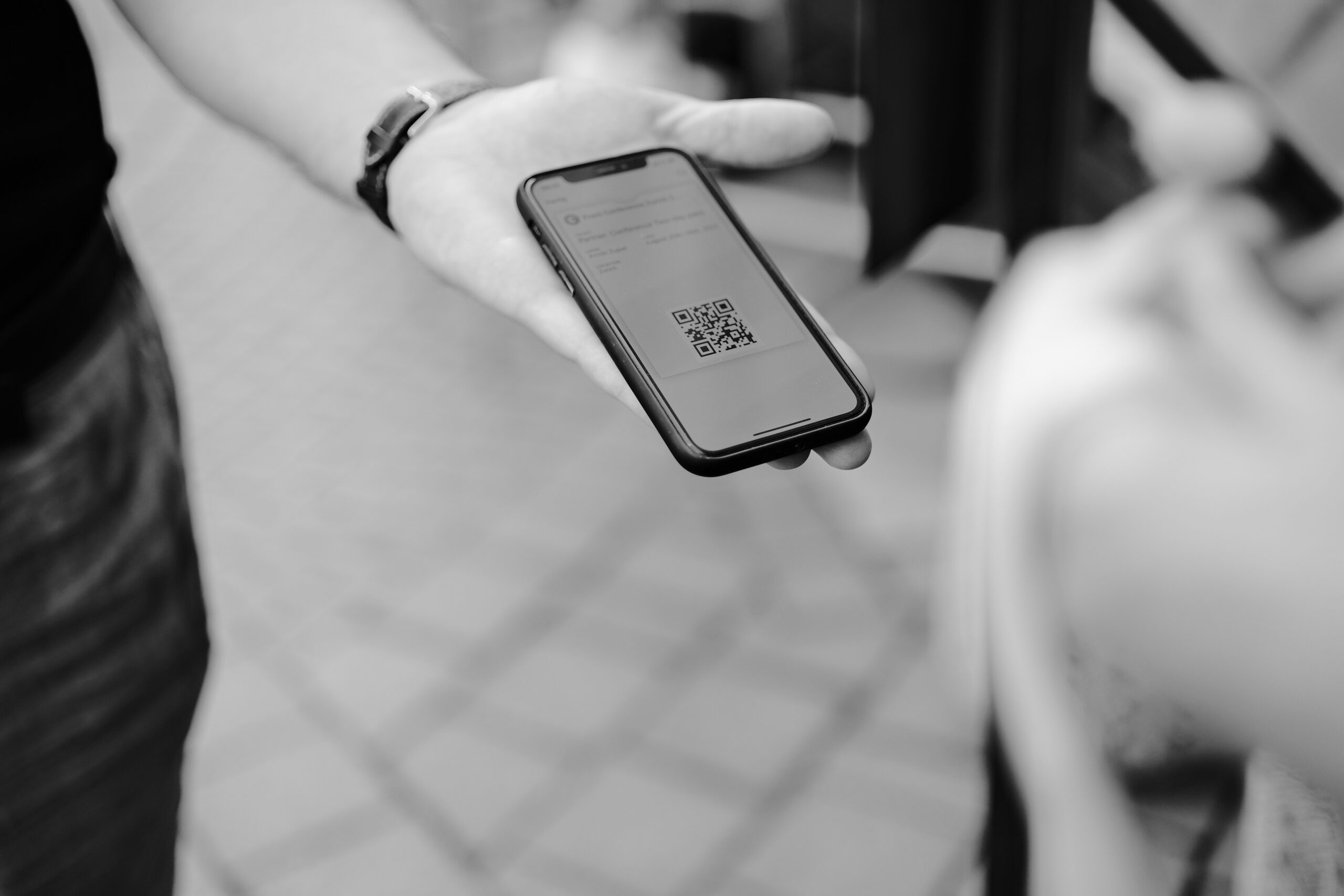Blog Ticket Books: Environmental Considerations & Industry Trends

Ticket books are often essential elements when it comes to event planning. Ticket books are versatile and can be used for event admission, coat checks, competitions and travel, for example.
Whilst these traditional ticketing methods have existed for decades, the way in which they are designed and implemented has developed significantly. Notably, the shift toward sustainability trends has heavily influenced traditional ticketing systems to more eco-friendly practices.
In this article, we will discuss the environmental concerns, as well as emerging industry trends to consider when purchasing ticket books, and some of the things you should be aware of when planning your event.
Let’s get into it!

Older ticket book practices impact the environment by contributing to deforestation, creating non-biodegradable waste, and potentially increasing carbon emissions through transportation.
In recent years, industry trends have favoured more eco-friendly ticketing practices, making a shift to more sustainable practices to minimise their environmental impact.
As consumers become more environmentally concerned, these practices are becoming an expectation and a serious consideration for users before making any purchase.
There are various environmental considerations that are made when it comes to the production of ticket books – from the means of production, to modes of transportation, there are many factors that influence the environmental impact of ticket books.
Some ticket books are made with plastics that cannot be recycled and are non-biodegradable. Once used, they can take hundreds of years to break down, contributing to plastic pollution.
Modern, sustainable ticketing options, such as the ticket books offered by The Wristband Co., are made with 100% recyclable materials. This green practice ensures the tickets can be popped into the recycling, and given a new life.
The Wristband Co. take pride in delivering premium-quality products that are made with biodegradable materials that eventually break down once they reach the end of their lives. Not only that, but they are all Australian Made including our custom designed ticket books. We believe in supporting Australian businesses, which is why each and every item is locally designed and manufactured with care, and why we remain firmly committed to keeping it homegrown.
The benefits of using recyclable materials in ticket books include a reduction in their environmental impact.
As for customer satisfaction, you can ensure that your customers know that you have considered and shown a commitment to sustainable ticketing options made with green practices in mind.
Companies face some challenges when it comes to using recycled materials.
These include higher costs in production and need to navigate regulations and certain eco-certifications such as the RecyClass Recycled Plastic Certification and the GECA (Good Environmental Choice Australia).

Another consideration when it comes to the environmental impact of traditional ticket books is the use of traditional inks.
Traditional ink contains chemicals that are made from pigments and solvents that contain volatile organic compounds and heavy metals.
Modern ink, which has been adopted by some printing companies, uses eco-friendly inks such as those made of soy, vegetable and water-based carriers.
At The Wristband Co., we prioritise environmentally friendly printing by using recyclable toner cartridges, which helps reduce landfill waste. Our toner is also designed to be more efficient, using less material and lasting longer, which further minimises our environmental footprint.
What makes some inks eco-friendly is the fact they are made from natural resources, and use non-toxic pigments, making them safer for the environment. Unlike traditional ink, they are made using plant pigments, and soy and are free of heavy metals. There are various ways that eco-friendly inks benefit the environment.
These inks are biodegradable, produce less carbon emissions in their manufacturing and reduce overall air pollution.
They are more beneficial for workers and the environment, as they help minimise the carbon footprint.
While using sustainable and environmentally safe inks is great for the environment, there are some potential drawbacks to using eco-friendly inks.
Generally speaking, green ink technology is more expensive compared to traditional inks and may not be as vibrant as other ink.
Sustainable practices are something that is at the forefront of the ticketing industry’s mind.
Customers are putting pressure on companies to implement eco-friendly practices in order to reduce their environmental impact, making it an expectation of tickets. Companies who commit to implementing sustainable practices attract eco-conscious consumers, give companies a competitive edge, and build a strong brand reputation that will become increasingly important going into the future.
Going forward, sustainable business practices will likely be implemented in legislation. Examples of this, include the banning of single use plastic bags. For ticketing, this may mean legislation controlling the use of single use plastics, and certain inks.
Some common sustainable practices in the ticketing industry include the use of recyclable and biodegradable materials such as thick GSM cards, minimising packaging used in ticketing and supporting carbon offsetting initiatives.
These practices benefit the environment by minimising the contribution to pollution, non-organic waste and toxic byproduct waste.
Companies benefit long-term from their sustainable ticketing systems in numerous ways.
Companies that support eco-friendly policies are more appealing to stakeholders, ensure customer loyalty and improve business reputation, for example.

Carbon offsetting allows companies to invest in projects that work to counteract their carbon emissions.
The idea is to compensate for the carbon produced by supporting methods of carbon capture – such as tree planting, renewable energy development and methane capture initiatives.
Carbon offsetting programs are programs and initiatives that undertake work resulting in the capture of carbon emissions.
They are often supported by companies that produce greenhouse gases in an effort to compensate for their environmental impact.
Ticketing companies benefit from carbon offsetting programs by offsetting their emissions and achieving carbon neutrality.
This is something that is sought after by buyers, investors and is becoming an expected practice from many leading ticketing companies.
Large companies such as Microsoft, Apple and Amazon have all committed to being carbon-neutral.
They have invested in carbon removal projects and are transitioning to renewable energy sources. It’s an industry trend that is taking over the world, and aiding our beautiful planet.

One of the leading industry trends in ticketing is a shift to sustainable practices. Investors, customers and employees are now expecting sustainable practices as part of ticketing production.
Other trends include customised tickets – which allow event organisers to personalise tickets to their event and create memorable pieces that are more than just gateways into an event.
The Wristband Co. is adapting to these industry trends by committing to carbon offsetting (via a Plant-A-Tree program for wristband sales), use of eco-friendly materials and investing inthe production of ticketing in Australia, further minimising the company’s carbon footprint. The use of cutting edge technology and offering biodegradable wristbands and tickets, makes them a leader in the industry.
Customisable tickets are the new norm when it comes to ticketing systems. Tickets are seen as more than just useful event resources – but rather potential souvenirs that are kept long after the event has finished. The Wristband Co. makes customisation simple, with options of logos, colours and patterns that allow companies to express themselves through these potential keepsakes.
Some of the latest trends in ticket customisation used by event organisers include using dynamic QR codes that link to the latest event information, as well as embedded multimedia links.
Other trends are more aesthetic and include selected prints, colours and patterns that are exclusive to the event.
Customisation benefits event organisers and attendees by enhancing communication.
QR codes and embedded links allow people to keep up to date with event information, access discounts and allow for controlled access into the venue, for example.
As for the design, personalised designs make for memorable keepsakes.
A prime example of innovative ticket customisation was that used by companies such as the Seed Paper Ticket, which uses eco-friendly materials and embedded seeds, that allow you to plant your ticket, that will eventually seed into a small flower.

There are numerous technological advancements in the ticketing industry, which are utilised by event organisers for unique and often tech-driven solutions.
Some examples include immersive pre-event experiences using virtual reality codes embedded into tickets, contactless entrance and real-time updates using unique QR codes.
The benefits of these advancements include offering a more interactive platform that engages the audience, offers an opportunity for targeted promotion, and adds to the overall user experience.
Future trends in ticketing technology are largely virtual ones.
However, there is also a push that is back towards revised traditional systems like physical tickets, for memorabilia and aesthetic purposes.
Emerging trends such as physical tickets that include seeds embedded and a huge array of other unique features such as augmented reality codes, allowing users to scan the code, and access a virtual reality based on the event, for example. Whereas the use of QR codes allows users to scan the code and access itineraries, maps and discounts are becoming much more common.

Ticketing books have varying potential for environmental impact, which are heavily influenced by their means of production and distribution.
These factors include their use of recyclable material, eco-friendly inks, sustainable practices they utilise, and whether they engage in carbon offsetting.
There are both potential drawbacks and many benefits to investing in eco-friendly ticketing practices. It is important to weigh these against each other in order to make the best decision for your company/event.
However, with these in mind, investing in sustainable tickets is still one of the leading market trends.
Other trends that should influence your event planning is the expectation around customised tickets. These include the use of QR codes, unique features and memorable designs.
In the future, expect more technological advancements, which aim to further improve user experience, and minimise environmental impact.
If you’re looking to purchase ticketing books for your next event, consider looking into the company’s environmental policies. In today’s world, climate concern is a major factor influencing investors and consumers when purchasing products.
To read up on The Wristband Co.’s environmental commitments, follow the link here.
If you’re curious about The Wristband Co.’s products, and how they can benefit you in your next event, you can flick them an email at [email protected] or talk to one of their friendly team members at 08 8363 4850.


Join our mailing list to receive product information, endless inspiration and 10% off your next order!
Monday – Friday 8:30 AM-8:30 PM
Saturday 10:00 AM-5:00 PM
Sunday CLOSED
38 Little Rundle Street Kent Town SA 5067
08 8363 4850
ABN: 62 239 772 879
The Wristband Co. is located on the traditional lands for the Kaurna people, and we respect their spiritual relationship with their Country. We also acknowledge the Kaurna people as the custodians of the Adelaide region and that their cultural and heritage beliefs are still as important to the living Kaurna people today.
Payments Accepted